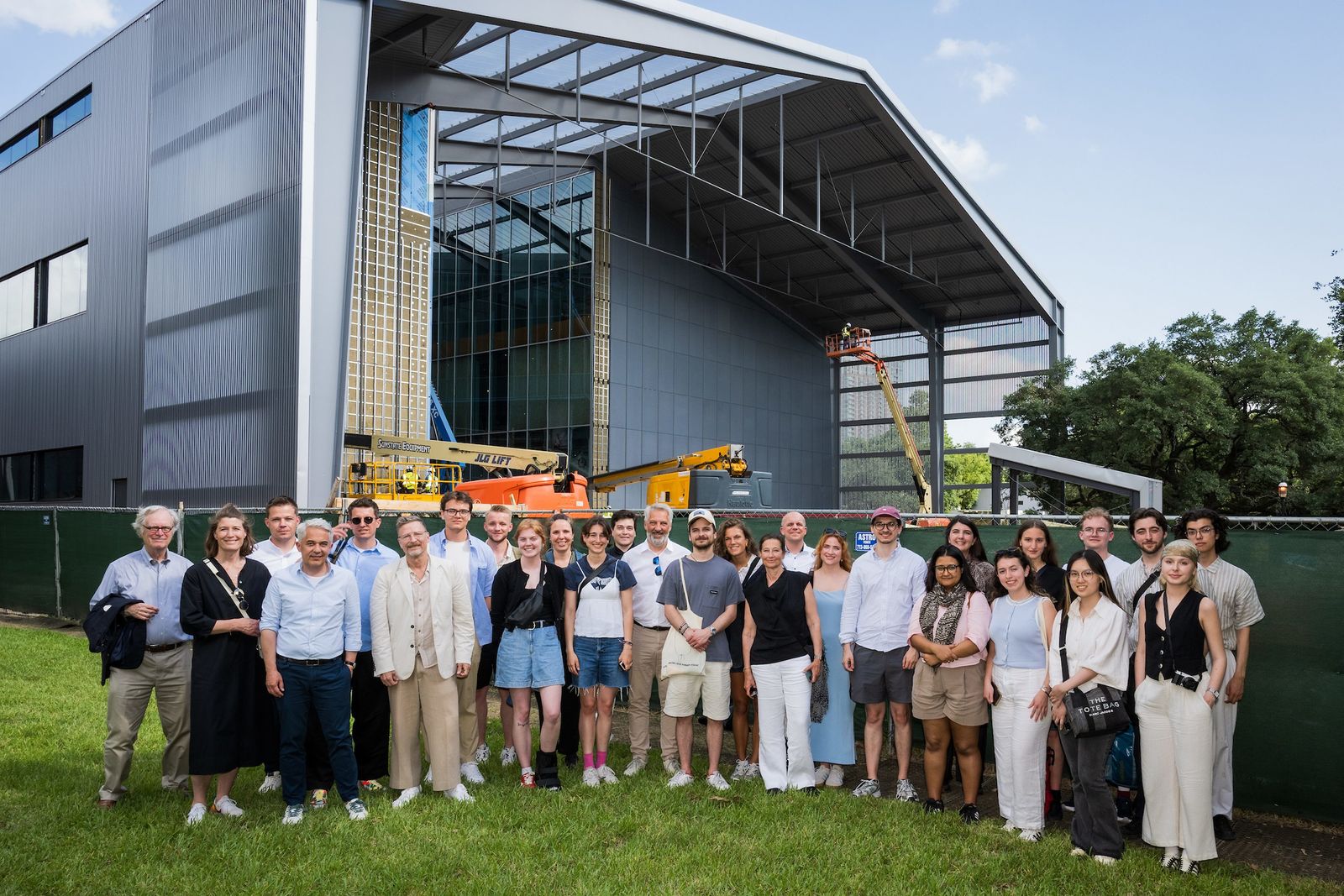“800 Bell Street –
From Midcentury Monument to Shared Civic Stage”
The aac Spring Workshop 2025 Presents Ideas for Repurposing a High-Rise in Downtown Houston
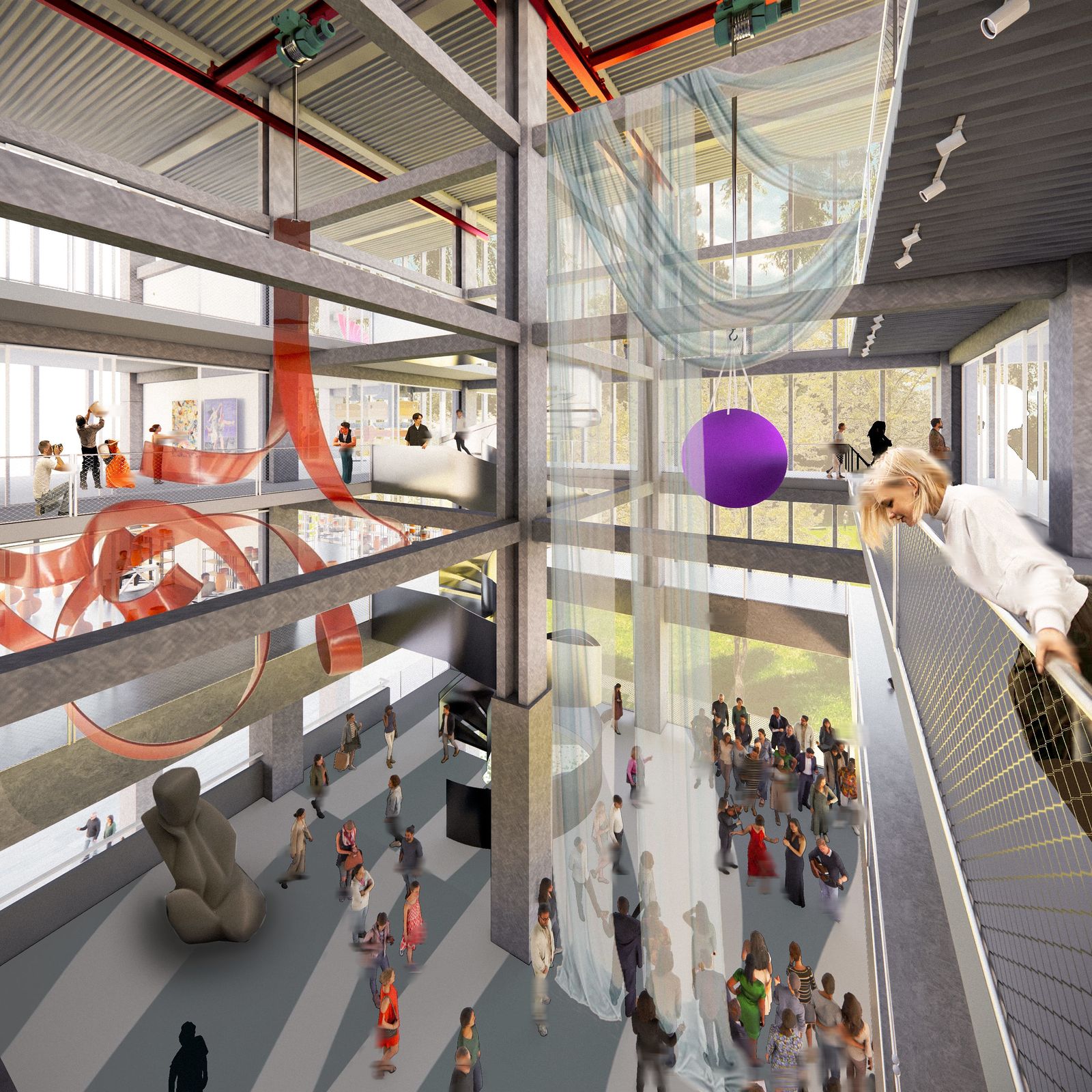
Group 1: Perspective Gallery © aac
As part of a special focus on the United States, the spring workshop of the gmp Foundation’s Academy for Architectural Culture (aac) explored new uses for the ExxonMobil Building, a high-rise in Houston, Texas. Located on Bell Street in the heart of downtown, the building once stood as a symbol of the energy industry’s growth and played a key role in Houston’s rise as a center of oil and commerce. However, the 45-storey building from the 1960s has now stood vacant for some time. So how can the potential of this empty office tower be reimagined to help create new housing while also revitalizing the surrounding urban environment?
Over a four-week period, the 16 aac scholarship students engaged intensively with this question, developing proposals that balanced functional needs with social considerations. Their concepts were informed by detailed building data and thorough analyses of the site’s urban context. Rather than viewing the 800 Bell Street tower in isolation, the teams approached it as part of a larger urban fabric, integrating it and the surrounding lots into a multifunctional “superblock.”
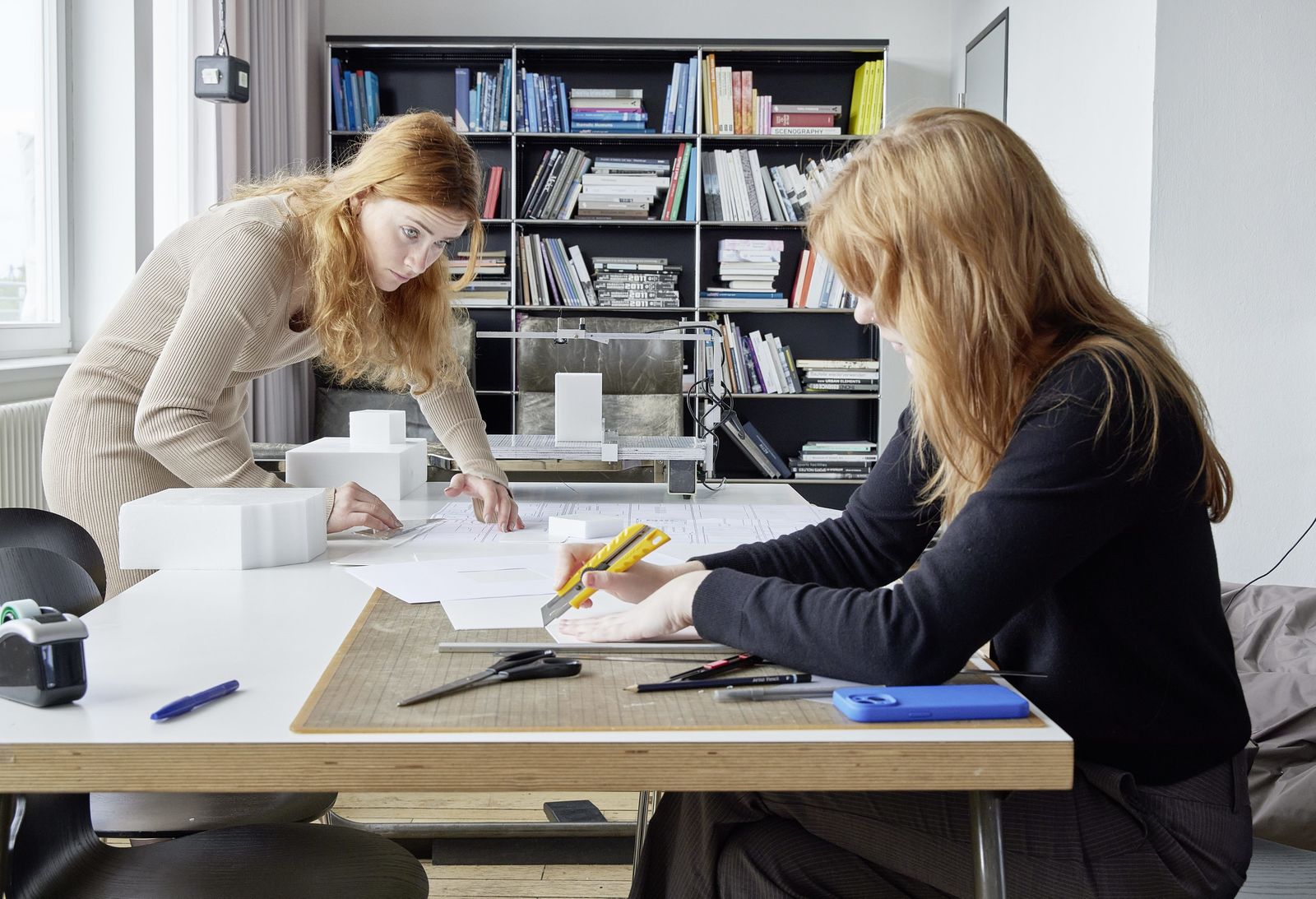
The workshop began with a field trip to Houston, organized in collaboration with the Rice University School of Architecture. The scholarship students explored the vacant tower and surrounding area, and attended lectures hosted by the School of Architecture at Rice. Back at the aac studios in Hamburg, the teams started their design work. They were mentored throughout the workshop by gmp Executive Partner Stephan Schütz, along with gmp Partner Nicolas Pomränke and gmp-Associate Partner Tobias Keyl as well as Igor Marjanović, dean and professor at Rice School of Architecture. Guest lectures were delivered by Nadir Abdessemed of Transsolar Klima Engineering (Stuttgart), Jonas Janke of b+ (bplus.xyz) from Berlin, and Charles Renfro of Diller Scofidio + Renfro (New York).
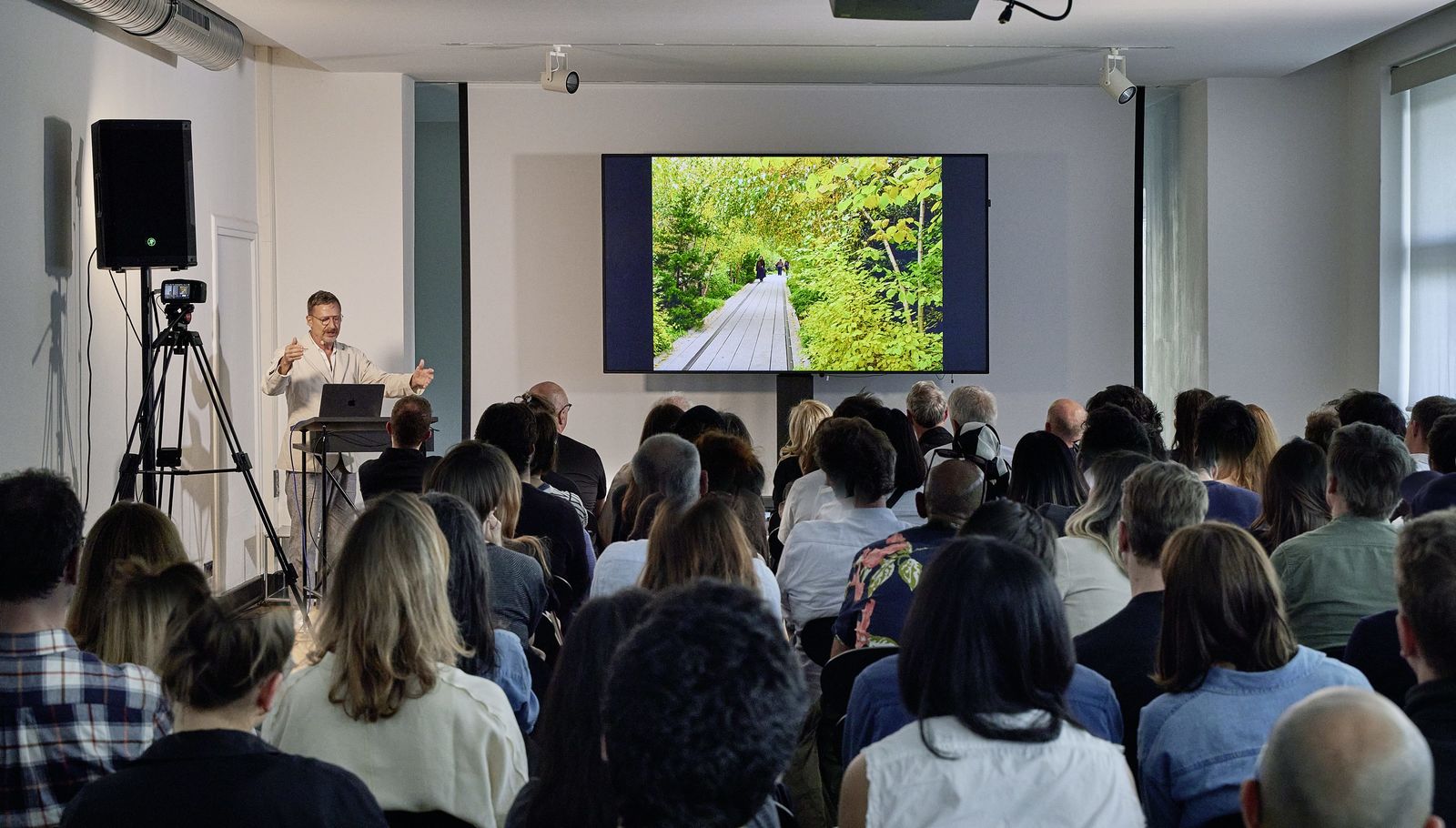
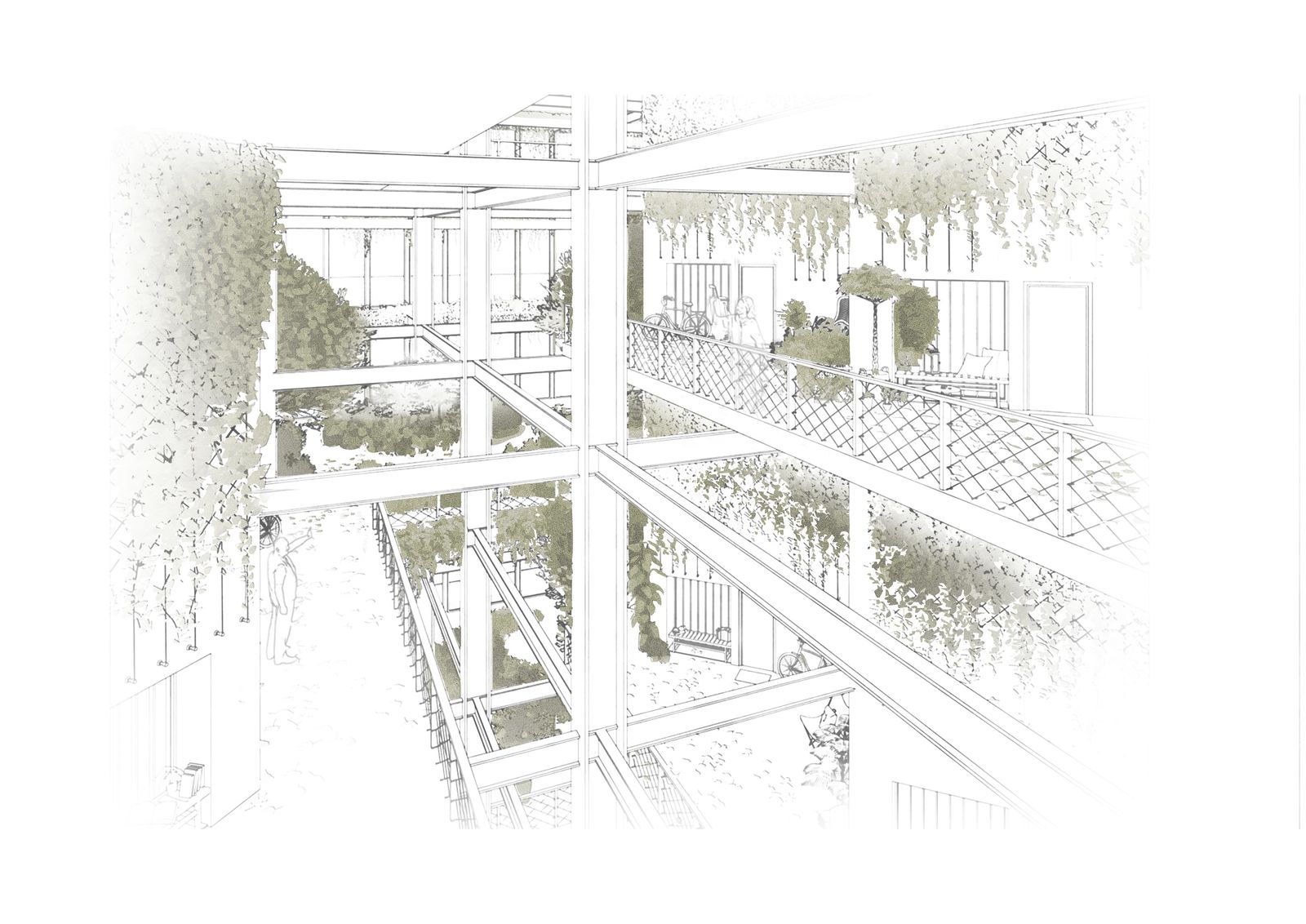
Group 2: Private Porches © aac
The first of the four design teams focused on integrating artistic production and public workshops, aiming to make creative processes in the local arts scene visible and to culturally activate the neighborhood. The second group developed an urban farming concept designed to promote social interaction through cross-generational, cross-cultural food cultivation and preparation. The third team emphasized the visibility of medical research by proposing an urban medical campus that connects with the local community. The key elements of the fourth group’s design centered on fostering civic engagement through purpose-designed action spaces, or “stages.”
What all the concepts have in common is that they go beyond functional reuse. Instead, each one envisions the building as a focal point for new urban uses and forms of community. The architectural drawings and illustrations reflect the shared objective of all scholarship students to make urban life, participation, and spatial integration a tangible experience.
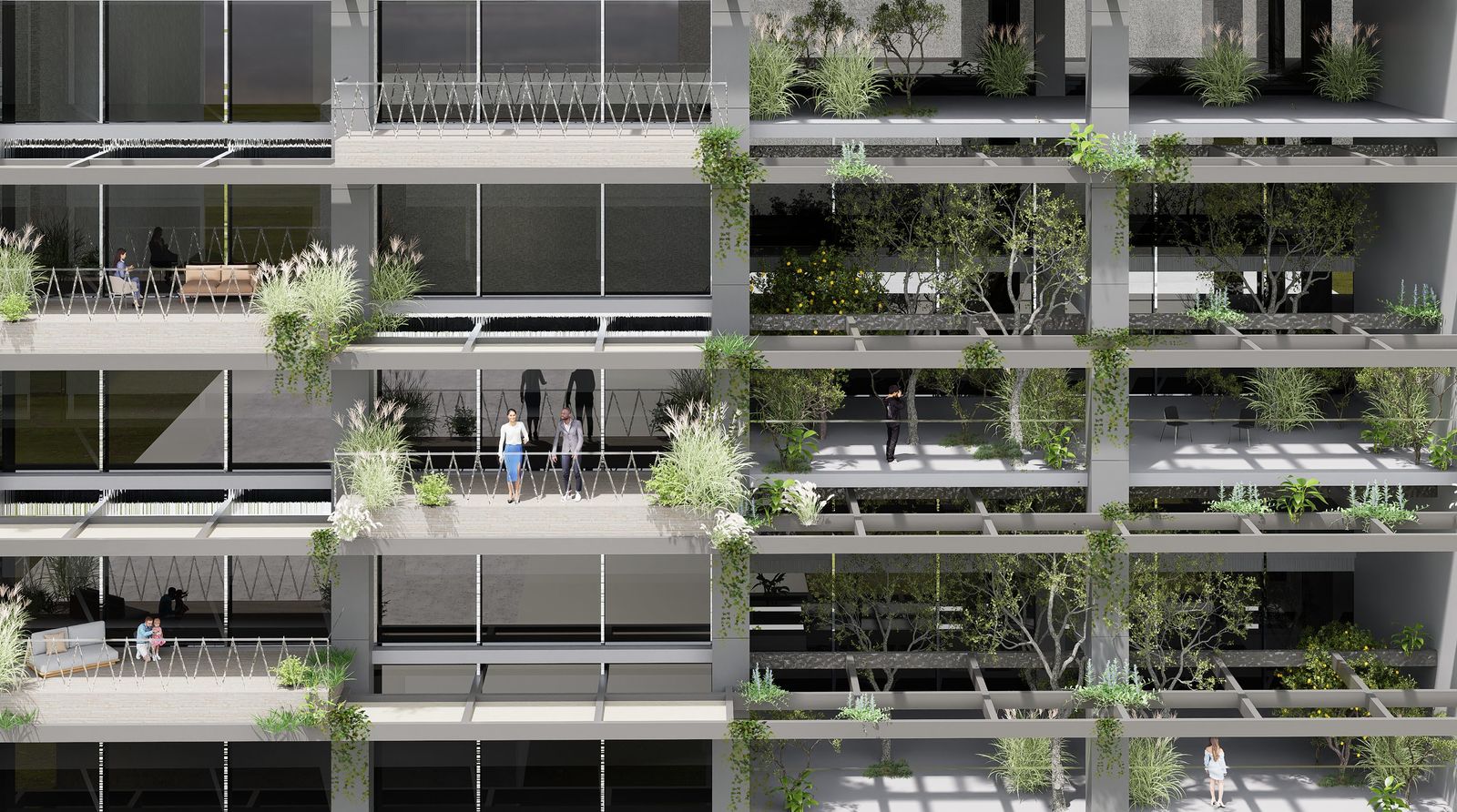
Group 3: Balconies © aac
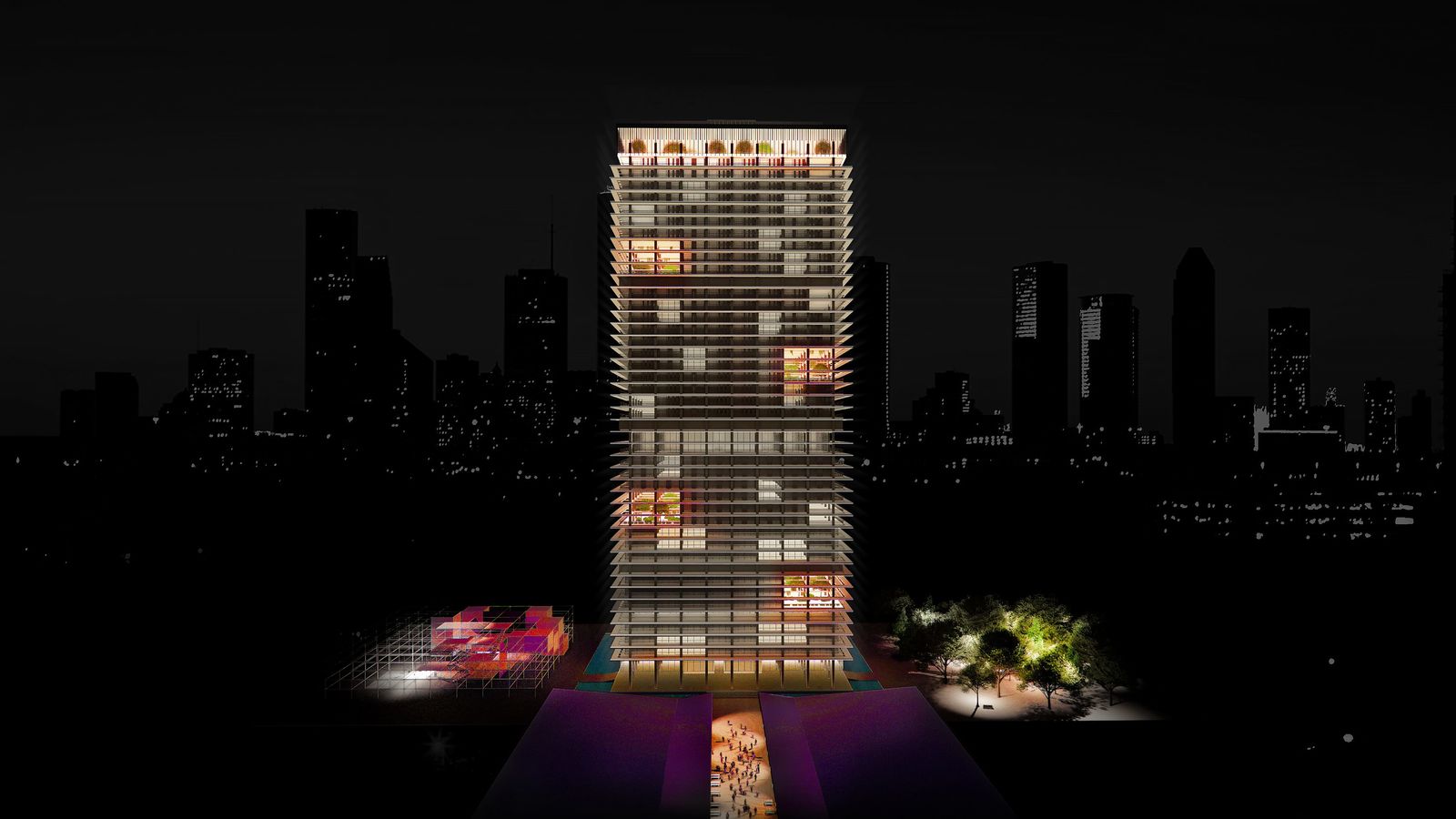
Group 4: Elevation © aac
The Academy for Architectural Culture (aac) supports students in the fields of architecture, landscape architecture, and landscape management.
The workshop was led by architect Stephan Schütz (Dipl.-Ing.), with architects Nicolas Pomränke (Dipl.-Ing.) and Tobias Keyl (Dipl.-Ing.).
Exhibition open through Friday, August 1, 2025
Opening hours: Monday to Friday, 10:00 a.m. – 2:00 p.m., closed on public holidays
Location: Campus Rainvilleterrasse, Ground Floor, Rainvilleterrasse 4, 22765 Hamburg
aac Team Enno N. Maaß, Annika Göttle, Anja Meding, Gabriela Hopf, Lina Wenzel
Tutors Fabian Faerber, Walter Gebhardt, Annika Göttle, Anja Meding
Scholarship Students Immanuel Bergmann, Donatus Bock, Emily Hatch, Zofia Kaziród, Nikola Kolarov, Lennart Kremerskothen, Piotr Kruszek, Rhona de Lange, Dawid Mazanek, Luna Milani, Atiya Nusrat, Oliver Petch, Laura Pisciotte, Saskia Riede, Selma Schulte-Frohlinde, Yao Yundi
